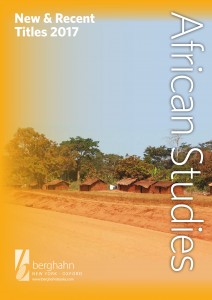We are delighted to inform you that we will be present at 59th Annual Meeting of the ASA in Washington DC, December 1 – 3, 2016. Please stop by our booth #316 to browse the latest selection of books at discounted prices & pick up some free journal samples.
If you are unable to attend, we would like to provide you with a special discount offer. For the next 30 days, receive a 25% discount on all African Studies titles found on our website. At checkout, simply enter the discount code AfSA16. Browse our newly published online African Studies 2017 Catalog or use the subject searching features on our website for a complete listing of all published and forthcoming titles.
The AfSA Annual Meeting is the largest gathering of Africanist scholars in the world, with an attendance of about 2,000 scholars and professionals. For more information on the program, events, theme, other exhibitors and location please visit African Studies Association webpage.
Here is a preview of some of our newest releases:
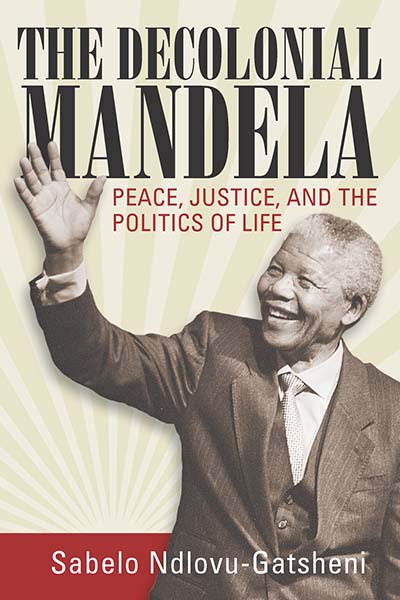 Paperback Original
Paperback Original
The Decolonial Mandela
Peace, Justice and the Politics of Life
Sabelo Ndlovu-Gatsheni
“This is a completely original contribution to our understanding of Mandela. It provides a long overdue decolonial perspective that situates Mandela’s life and thought within current academic debates and the political and ethical challenges facing global humanity. It will be essential reading across multiple disciplines.” · Ramon Grosfoguel, University of California, Berkeley –
A significant contribution to the emerging literature on decolonial studies, this concise and forcefully argued volume lays out a groundbreaking interpretation of the “Mandela phenomenon.” Contrary to a neoliberal social model that privileges adversarial criminal justice and a rationalistic approach to war making, Sabelo J. Ndlovu-Gatsheni identifies transformative political justice and a reimagined social order as key features of Nelson Mandela’s legacy. Mandela is understood here as an exemplar of decolonial humanism, one who embodied the idea of survivor’s justice and held up reconciliation and racial harmony as essential for transcending colonial modes of thought.
Read Introduction: Mandela Phenomenon as Decolonial Humanism
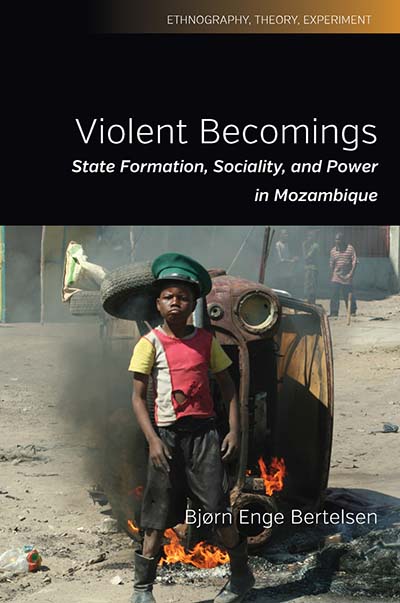 Paperback Original
Paperback Original
Violent Becomings
State Formation, Sociality, and Power in Mozambique
Bjørn Enge Bertelsen
Volume 4, Ethnography, Theory, Experiment
This is a valuable contribution to the literatures on African political history at both the macro and micro scales… It represents what many Africanist anthropologists today hope to achieve – a monograph that is both ethnographically rich and theoretically engaged.” · Danny Hoffman, University of Washington
Violent Becomings conceptualizes the Mozambican state not as the bureaucratically ordered polity of the nation-state, but as a continuously emergent and violently challenged mode of ordering. In doing so, this book addresses the question of why colonial and postcolonial state formation has involved violent articulations with so-called ‘traditional’ forms of sociality. The scope and dynamic nature of such violent becomings is explored through an array of contexts that include colonial regimes of forced labor and pacification, liberation war struggles and civil war, the social engineering of the post-independence state, and the popular appropriation of sovereign violence in riots and lynchings.
Violent Becomings: State Formation, Sociality, and Power in Mozambique by Bjørn Enge Bertelsen is available open access under a Creative Commons Attribution-NonCommercial-NoDerivatives 4.0 International License (CC BY-NC-ND 4.0).
This edition is supported by the University of Bergen. full text
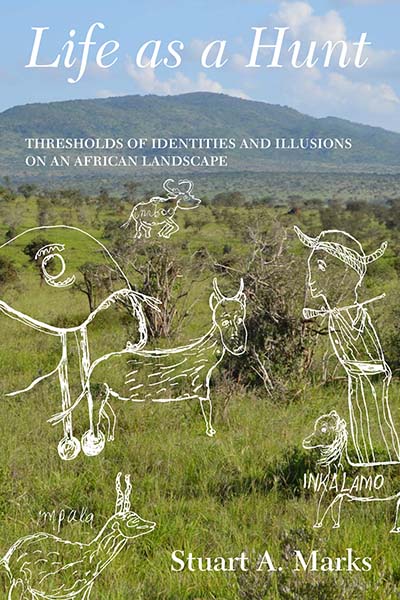 LIFE AS A HUNT
LIFE AS A HUNT
Thresholds of Identities and Illusions on an African Landscape
Stuart A. Marks
“This is a superb book. It brings together Stuart Marks’ detailed long-term work on hunting and other issues among the Bisa of the Manyamadzi Corridor of Zambia since the 1960s.” · Robert K. Hitchcock, Michigan State University
The “extensive wilderness” of Zambia’s central Luangwa Valley is the homeland of the Valley Bisa whose cultural practices have enriched this environment for centuries. Beginning with the intrusions of warlords and later British colonials, successive generations have experienced the callousness and challenges of colonialism. Their homeland, a slender corridor surrounded by three national parks and an escarpment, is a microcosm of the political, economic and cultural battlefields surrounding most African protected areas today. The story of the Valley Bisa diverges from the myths that conservationists, administrators, and philanthropists, tell about Africa’s environmental and wildlife crises.
Read Introduction: On Poaching an Elephant: Calling the Shots and Following the Ricochets
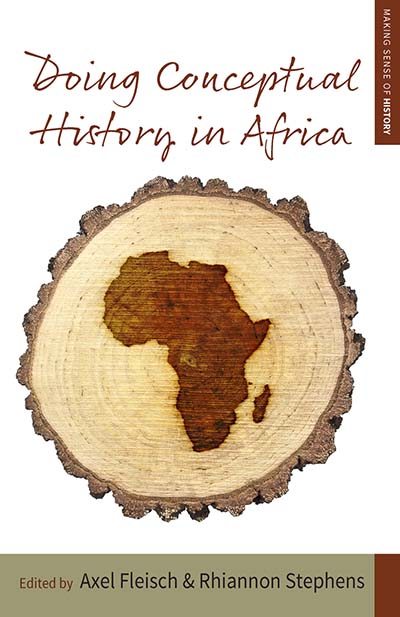 DOING CONCEPTUAL HISTORY IN AFRICA
DOING CONCEPTUAL HISTORY IN AFRICA
Edited by Axel Fleisch and Rhiannon Stephens
Volume 25, Making Sense of History
“This pioneering volume is the first to apply the methods of conceptual history to the languages and cultures of sub-Saharan Africa, and as such will be welcomed by a wide variety of scholars. It is a major achievement.” · Willibald Steinmetz, Bielefeld University
Employing an innovative methodological toolkit, Doing Conceptual History in Africa provides a refreshingly broad and interdisciplinary approach to African historical studies. The studies assembled here focus on the complex role of language in Africa’s historical development, with a particular emphasis on pragmatics and semantics. From precolonial dynamics of wealth and poverty to the conceptual foundations of nationalist movements, each contribution strikes a balance between the local and the global, engaging with a distinctively African intellectual tradition while analyzing the regional and global contexts in which categories like “work,” “marriage,” and “land” take shape.
Read Introduction: Theories and Methods of African Conceptual History
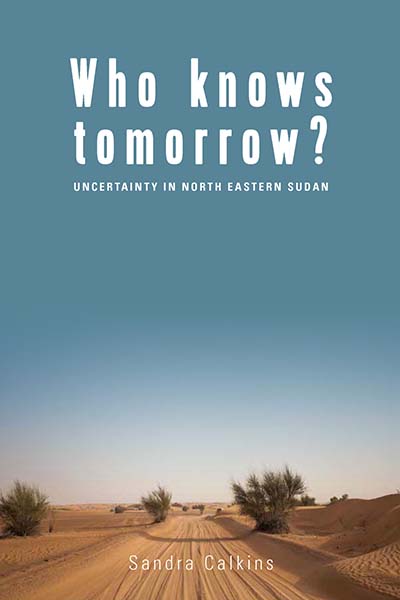 WHO KNOWS TOMORROW?
WHO KNOWS TOMORROW?
Uncertainty in North-Eastern Sudan
Sandra Calkins
“The book is a rich ethnographic and theoretical contribution to the anthropology not only of uncertainty but of the future, which is after all where much of our uncertainty lies. It substantiates the point that ‘culture’ and ‘institutions’ are not completed and stabilized products of the past but are ongoing accomplishments of the present, oriented to circumstances of imperfect knowledge, contested interests and perspectives, and open horizons.” · Anthropology Review Database
Although uncertainty is intertwined with all human activity, plans, and aspirations, it is experienced differently: at times it is obsessed over and at times it is ignored. This ethnography shows how Rashaida in north-eastern Sudan deal with unknowns from day-to-day unpredictability to life-threatening dangers. It argues that the amplification of uncertainty in some cases and its extenuation in others can be better understood by focusing on forms that can either hold the world together or invite doubt. Uncertainty, then, need not be seen solely as a debilitating problem, but also as an opportunity to create other futures.
Read Introduction: Taming Unknowns in Sudan
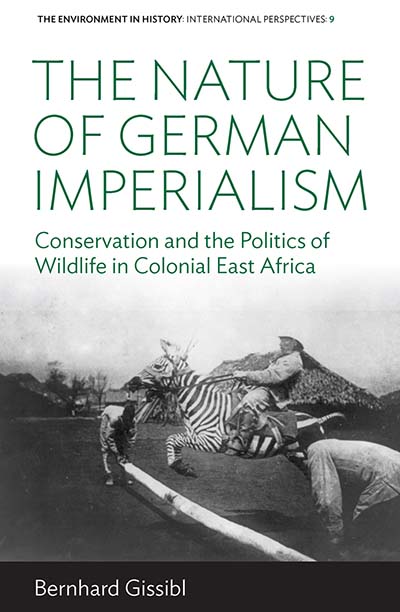 THE NATURE OF GERMAN IMPERIALISM
THE NATURE OF GERMAN IMPERIALISM
Conservation and the Politics of Wildlife in Colonial East Africa
Bernhard Gissibl
Volume 9, Environment in History: International Perspectives
“This is a truly outstanding study of a topic that has been only tangentially treated in the literature. Gissibl draws upon an impressive body of evidence, weaving sources together seamlessly without letting the details occlude the main arguments and conceptual direction.” · Jane Carruthers, University of South Africa
Today, the East African state of Tanzania is renowned for wildlife preserves such as the Serengeti National Park, the Ngorongoro Conservation Area, and the Selous Game Reserve. Yet few know that most of these initiatives emerged from decades of German colonial rule. This book gives the first full account of Tanzanian wildlife conservation up until World War I, focusing upon elephant hunting and the ivory trade as vital factors in a shift from exploitation to preservation that increasingly excluded indigenous Africans.
Read Introduction: Doorsteps in Paradise
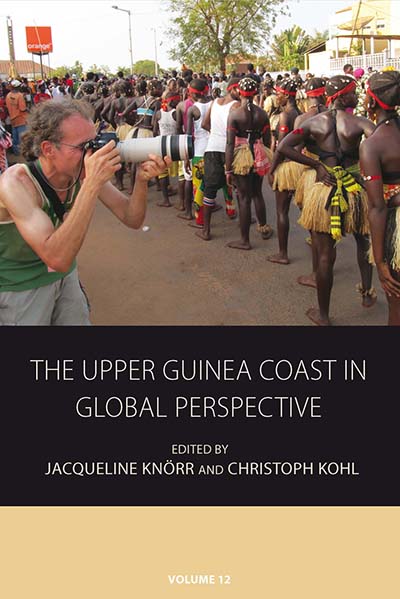 THE UPPER GUINEA COAST IN GLOBAL PERSPECTIVE
THE UPPER GUINEA COAST IN GLOBAL PERSPECTIVE
Edited by Jacqueline Knörr and Christoph Kohl
Volume 12, Integration and Conflict Studies
“The contributions to this volume cover a great diversity of topics from multiple perspectives. It constitutes a welcome addition to the literature on the Upper Guinea Coast, particularly by taking an anthropological approach to a region that has for the most part been studied historically.” · Philip Jan Havik, Instituto de Higiene e Medicina Tropical, Portugal
For centuries, Africa’s Upper Guinea Coast region has been the site of regional and global interactions, with societies from different parts of the African continent and beyond engaging in economic trade, cultural exchange, and various forms of conflict. This book provides a wide-ranging look at how such encounters have continued into the present day, identifying the disruptions and continuities in religion, language, economics, and various other social phenomena that have resulted. These accounts show a region that, while still grappling with the legacies of colonialism and the slave trade, is both shaped by and an important actor within ever-denser global networks, exhibiting consistent transformation and creative adaptation.
Read full text
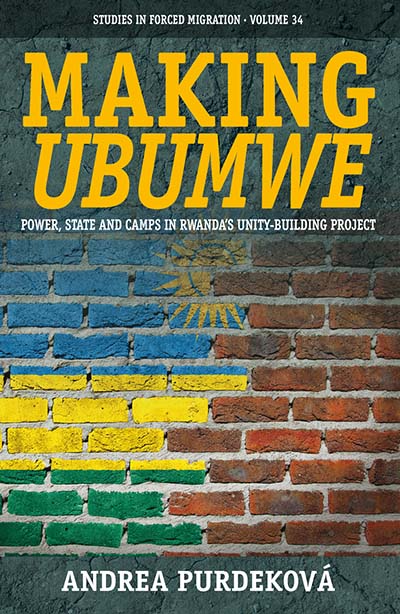 FINALIST FOR THE AFRICAN STUDIES ASSOCIATION 2016 BETHWELL A. OGOT BOOK PRIZE
FINALIST FOR THE AFRICAN STUDIES ASSOCIATION 2016 BETHWELL A. OGOT BOOK PRIZE
MAKING UBUMWE
Power, State and Camps in Rwanda’s Unity-Building Project
Andrea Purdeková
Volume 34, Forced Migration
Since the end of the Rwandan genocide, the new political elite has been challenged with building a unified nation. Reaching beyond the better-studied topics of post-conflict justice and memory, the book investigates the project of civic education, the upsurge of state-led neo-traditional institutions and activities, and the use of camps and retreats shape the “ideal” Rwandan citizen. Rwanda’s ingando camps offer unique insights into the uses of dislocation and liminality in an attempt to anchor identities and desired political roles, to practically orient and symbolically place individuals in the new Rwandan order, and, ultimately, to create additional platforms for the reproduction of political power itself.
Read PART I: INTRODUCTION
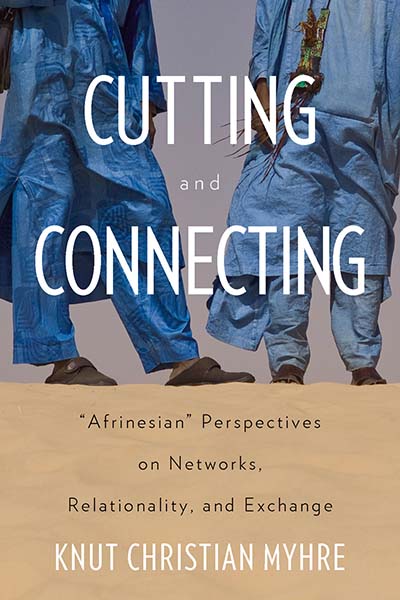 Paperback Original
Paperback Original
CUTTING AND CONNECTING
‘Afrinesian’ Perspectives on Networks, Relationality, and Exchange
Edited by Knut Christian Myhre
Questions regarding the origins, mobility, and effects of analytical concepts continue to emerge as anthropology endeavors to describe similarities and differences in social life around the world. Cutting and Connecting rethinks this comparative enterprise by calling in a conceptual debt that theoretical innovations from Melanesian anthropology owe to network analysis originally developed in African contexts. On this basis, the contributors adopt and employ concepts from recent studies of Melanesia to analyze contemporary life on the African continent and to explore how this exchange influences the borrowed anthropological perspectives. By focusing on ways in which networks are cut and connections are made, these empirical investigations show how particular relationships are created in today’s Africa. In addition, the volume aims for an approach that recasts relationships between theory and place and concepts and ethnography, in a manner that destabilizes the distinction between fieldwork and writing.
FORTHCOMING:
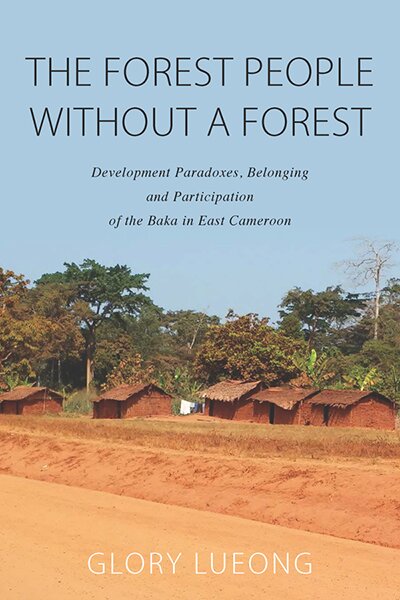 THE FOREST PEOPLE WITHOUT A FOREST
THE FOREST PEOPLE WITHOUT A FOREST
Development Paradoxes, Belonging and Participation of the Baka in East Cameroon
Glory M. Lueong
Development interventions often generate contradictions around questions of who benefits from development and which communities are targeted for intervention. This book examines how the Baka, who live in Eastern Cameroon, assert forms of belonging in order to participate in development interventions, and how community life is shaped and reshaped through these interventions. Often referred to as ‘forest people’, the Baka have witnessed many recent development interventions that include competing and contradictory policies such as ‘civilize’, assimilate and integrate the Baka into ‘full citizenship’, conserve the forest and wildlife resources, and preserve indigenous cultures at the verge of extinction.
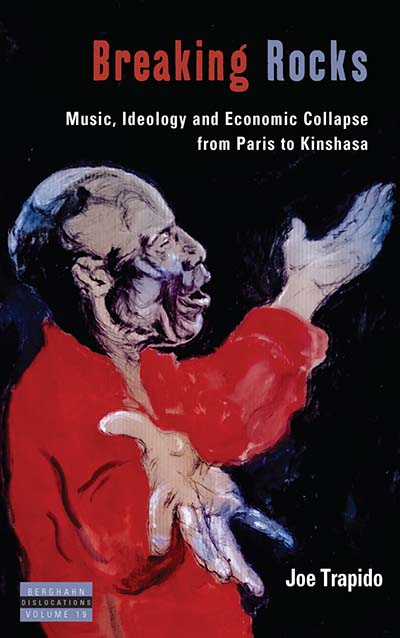 BREAKING ROCKS
BREAKING ROCKS
Music, Ideology and Economic Collapse, from Paris to Kinshasa
Joe Trapido
Volume 19, Dislocations
“This is a highly impressive, utterly original, often brilliant book on both the empirical and theoretical levels… A wonderful ethnography of music production, performance, spectacle, and deceit.” · Nancy Rose Hunt, University of Michigan
Based on fieldwork in Kinshasa and Paris, Breaking Rocks examines patronage payments within Congolese popular music, where a love song dedication can cost 6,000 dollars and a simple name check can trade for 500 or 600 dollars. Tracing this system of prestige through networks of musicians and patrons – who include gangsters based in Europe, kleptocratic politicians in Congo, and lawless diamond dealers in northern Angola – this book offers insights into ideologies of power and value in central Africa’s troubled post-colonial political economy, as well as a glimpse into the economic flows that make up the hidden side of the globalization.
FORTHCOMING IN PAPERBACK:
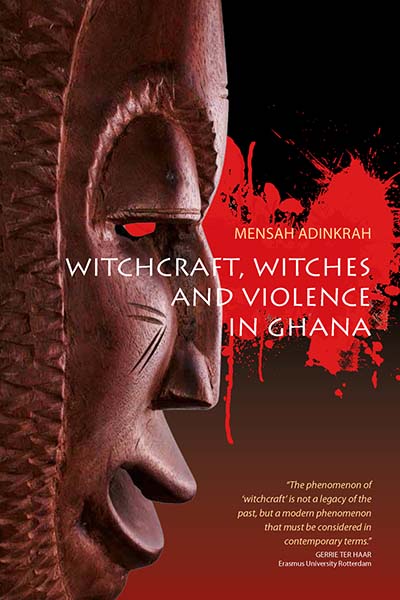 WITCHCRAFT, WITCHES, AND VIOLENCE IN GHANA
WITCHCRAFT, WITCHES, AND VIOLENCE IN GHANA
Mensah Adinkrah
“By attending to witch hunts in all its facets in Ghanaian society, [the author] offers the most in-depth examination of witchcraft to date… Although the author focuses on Ghana, the work draws attention to the fact that witchcraft-related violence is not unique to the country, but very much a part of global history, past and present. The wide variety of sources it pulls together and the human face it gives to witchcraft related violence are the biggest strengths of Witchcraft, Witches, and Violence. This is a valuable book for both undergraduate and graduate students in anthropology, sociology, cultural studies, and African studies.“ · International Journal of African Historical Studies (IJAHS)
This book provides a detailed account of Ghanaian witchcraft beliefs and practices and their role in fueling violent attacks on alleged witches by aggrieved individuals and vigilante groups.
Read Introduction: Witchcraft Violence in Comparative Perspective
 MASKS AND STAFFS
MASKS AND STAFFS
Identity Politics in the Cameroon Grassfields
Michaela Pelican
The Cameroon Grassfields, home to three ethnic groups – Grassfields societies, Mbororo, and Hausa – provide a valuable case study for the anthropological examination of identity politics and interethnic relations. In the midst of the political liberalization of Cameroon in the late 1990s and 2000s, local responses to political and legal changes took the form of a series of performative and discursive expressions of ethnicity. Confrontational encounters stimulated by economic and political rivalry, as well as socially integrative processes, transformed collective self-understanding in Cameroon in conjunction with recent global discourses on human, minority, and indigenous rights. The book provides a vital contribution to the study of ethnicity, conflict, and social change in the anthropology of Africa.
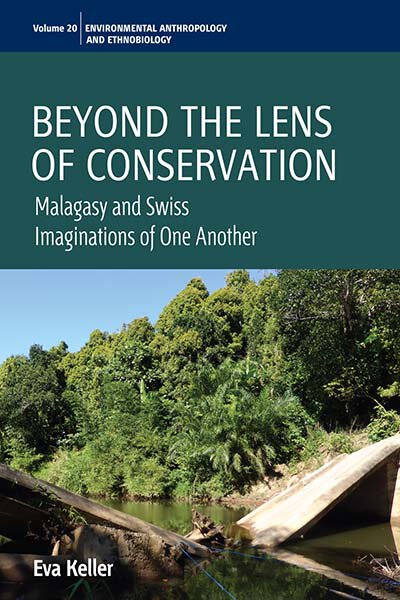 BEYOND THE LENS OF CONSERVATION
BEYOND THE LENS OF CONSERVATION
Malagasy and Swiss Imaginations of One Another
Eva Keller
Volume 20, Environmental Anthropology and Ethnobiology
“This book will make a great addition to undergraduate courses on Anthropology of the Environment and/or Development or Political Ecology. Keller’s highly readable style, in turn, will satisfy both those new to the subject and scholars already familiar with the topics of conservation practice in Madagascar. It could even become an important resource for those conservation experts who are trying – and (as the study shows) failing – to establish connections between distant places and people.” · Journal of Royal Anthropological Institute
The study investigates how the Malagasy farmers living at the edge of the park perceive the conservation enterprise and what people in Switzerland see when looking towards Madagascar through the lens of the zoo exhibit. It crystallizes that the stories told in either place have almost nothing in common: one focuses on power and history, the other on morality and progress. Thus, instead of building a bridge, Nature conservation widens the gap between people in the North and the South.
Read Introduction
 IMPERIAL PROJECTIONS
IMPERIAL PROJECTIONS
Screening the German Colonies
Wolfgang Fuhrmann
Volume 17, Film Europa
“Woldgang Fuhrmann succeeds with this impressive overview of German colonial film, largely neglected in the scholarly literature, to present convincingly the interaction of individual protagonists with various institutions. The bibliography conveys the depth of his research that can be considered exemplary. This also applies to the filmography that will inspire future research. The few illustrations are well selected and expressive.” · Filmblatt
By promoting business and establishing a new genre within the fast growing film industry, films of the colonies were welcomed by organizations such as the Deutsche Kolonialgesellschaft (German Colonial Society). The films triggered patriotic feelings but also addressed the audience as travelers, explorers, wildlife protectionists, and participants in unique cultural events. This book is the first in-depth analysis of colonial filmmaking in the Wilhelmine Era.
Read Introduction
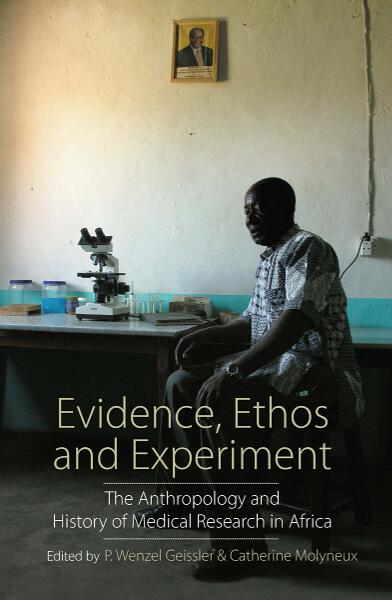 EVIDENCE, ETHOS AND EXPERIMENT
EVIDENCE, ETHOS AND EXPERIMENT
The Anthropology and History of Medical Research in Africa
Edited by P. Wenzel Geissler and Catherine Molyneux
“Each of the chapters is noteworthy. Together, they offer a promising opportunity to broaden the field of postcolonial science studies in ways that remind us how ethicality is at the heart of these encounters of science… the volume will be useful to medical anthropologists, science studies scholars, and generalist scholars of Africa and global health. Individual chapters, as well as whole sections of the book, will be particularly useful for teaching at the upper-division undergraduate or graduate levels.” Medical Anthropology Quarterly
Global debates about the politics and ethics of this research are growing and local concerns are prompting calls for social studies of the “trial communities” produced by this scientific work. Drawing on rich, ethnographic and historiographic material, this volume represents the emergent field of anthropological inquiry that links Africanist ethnography to recent concerns with science, the state, and the culture of late capitalism in Africa.
Of Related Interest from Berghahn Journals:
 Democratic Theory
Democratic Theory
An Interdisciplinary Journal
Democratic Theory is a peer-reviewed journal published and distributed by Berghahn. It encourages philosophical and interdisciplinary contributions that critically explore democratic theory-in all its forms.
Current Issue:
Volume 3, Issue 2
 Regions and Cohesion
Regions and Cohesion
Regiones y Cohesión / Régions et Cohésion
Regions and Cohesion is a needed platform for academics and practitioners alike to disseminate both empirical research and normative analysis of topics related to human and environmental security, social cohesion, and governance.
Current Issue:
Volume 6, Issue 3
 Religion and Society
Religion and Society
Advances in Research
Religion and Society: Advances in Research responds to the need for a rigorous, in-depth review of current work in the expanding sub-discipline of the anthropology of religion.
Current Issue:
Volume 7, Issue 1
 Theoria
Theoria
A Journal of Social and Political Theory
Theoria is an engaged, multidisciplinary and peer-reviewed journal of social and political theory.
Current Issue:
Volume 63, Issue 148

